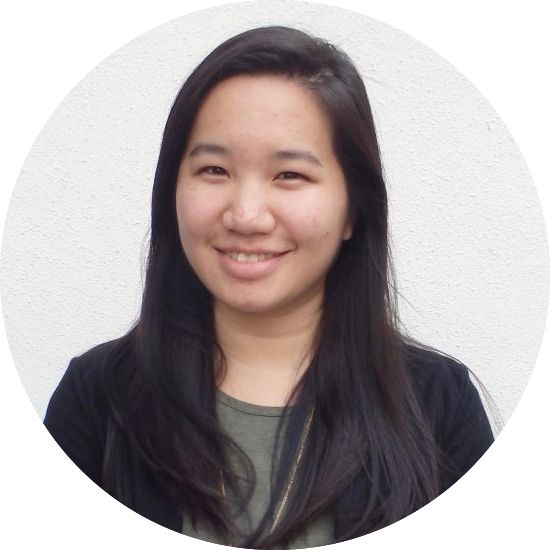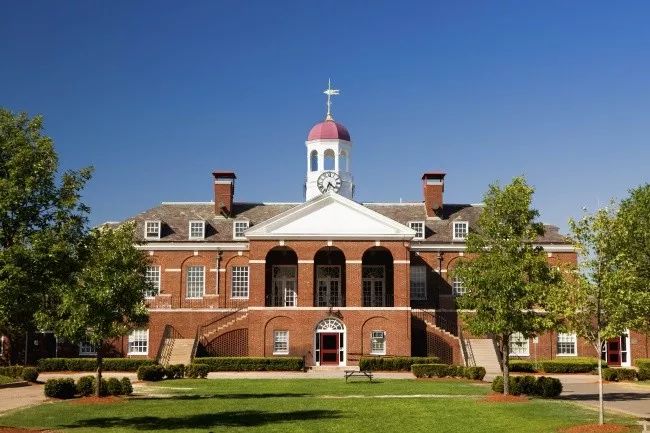当你11年级为申请大学焦头烂额时,殊不知别人9年级就进行 AEP 了。 |
您所在的位置:网站首页 › aep是什么考试 › 当你11年级为申请大学焦头烂额时,殊不知别人9年级就进行 AEP 了。 |
当你11年级为申请大学焦头烂额时,殊不知别人9年级就进行 AEP 了。
|
AEP 指导老师 Sean Huang
史密斯学院(Smith College)完成了心理与教育方向学士学位,约翰霍普金斯大学(Johns Hopkins University)硕士毕业,主修学校心理咨询。指导学生获得 Choate, St Mark's, Concord, Hotchkiss, Milton, Hill, Masters, Dana Hall, Tabor, Eaglebrook, CardiganMountain, Fay, Indian Mountain, New York University, Boston College, University of Southern California, Boston University, University of Washington, Hamilton University, Emory University 等校录取。
1 AEP 到底是什么? Sean:AEP 是为了让学生对高中四年进行一个最佳规划的项目。根据学生的兴趣爱好以及大学想学习的专业,我们会帮助他们尽早在学术和课外活动上做计划。在制定和具体实施这份计划的过程中,我们会从专业的角度引导和帮助学生,让他们充分发挥自己的主观能动性,不断独立不断进步。 Nigel:AEP 的目标是帮助学生了解自己的学术兴趣并且引导他们通过实际行动去探索这些兴趣。这个项目的目的不是单单给他们一个兴趣,而是需要学生自己通过实践去探索自己到底擅长什么,喜欢什么,并且找到未来工作的方向。 2 学生最好在什么时候开始规划AEP? S:当你拿到高中录取时,就应该开始规划未来四年了。因为现在申请大学的竞争越来越激烈,学生压力也越来越大,所以越早开始准备越好。 N:规划 AEP 的最佳时间是学生即将进入九年级时,因为这样团队能有充足的时间,去根据学生当时的喜好做一个灵活的计划。比如,如果一个学生在九年级时十分喜欢医学并且想读医学院,那么 AEP 就可以在九年级的课程上帮他做规划。可是到了十年级,学生发现自己并不那么喜欢生物课,而是更喜欢数学和经济,那么我们就可以根据他在学术上兴趣的改变。给他提出相应的建议, 比如去数学或者经济课程相关的夏校,而不是将所有时间都放在生物和化学上。虽然不是所有的计划都赶得上变化,但是AEP 最重要的是让学生开始自主思考自己想学什么,并且认真按照自己的兴趣去规划未来。 3 那么,对于那些并没有明确学术兴趣的学生,以及那些想去文理学院接受博雅教育的学生来说,AEP 是否也有帮助呢? N:对于这些学生来说,做规划依旧是有好处的。因为 AEP 可以帮助他们更好规划自己未来的职业。即使面对那些不想只专注于一个学科,而是想在文理学院学习广泛知识的学生,我们也会问他们同样的问题:你想通过教育得到什么?你未来想要过什么样的生活?其实这个项目对文理学院的学生更有益处。因为虽然许多人会认为文理学院毕业的学生很难在专业领域找到工作,可是AEP 的规划能让学生去发现各个职业的可能性。 4 AEP 如何帮助学生找到自己的学术兴趣 S:我们会从学生参与的课外活动入手,并且参考他们在学校的课表,然后提出一些方向性的建议。其实就算没有明确的兴趣也没有关系,最重要的是学生应该知道自己身边有那些机会以及自身潜能在哪里。 5 AEP 对每个年级的规划有什么不同吗? S:九年级时,我们会确保学生为课程的 Placement Exam 做好准备,这样学生入学后就能被分配到符合自己水平的课程中。那么十年级的规划就建立在九年级的积累上,我们会对过去一年进行复盘,哪些课程或者课外活动是学生想继续或想改变的。同时,会督促学生开始着手准备 ACT 和 SAT 考试,并建议学生开始学习一到两门的 AP 课程。 N:每个年级最大的不同在于暑期规划。九年级以及十年级暑假,我们一般会安排学生去参加大学夏校,这样可以让学生更深入地学习自己感兴趣的学科。十一年级的暑假我们会建议学生去进行至少为期一个月的实习。 S:对于暑期的实习及夏校,我们不仅是让学生参加这些活动,还会要求学生在参与后对自己的经历进行思考,去探究自己到底学到了什么。当然,我们也会保证学生在参加实习时,可以真正接触一些有意义的项目,而不是做一些端咖啡的工作。 6 AEP 和普通大学规划有什么不同? S:普遍来说,高中里的大学导师只有在十一年级才开始正式指导学生。而 AEP 因为开始得更早,就意味着我们有更多时间去了解学生,也有更多时间去尝试和变化。大部分情况下,如果十一年级才开始探索学术兴趣就已经太晚了。因为对于十一年级的学生来说,他们应该在学习与自己学术兴趣相关的更高阶课程了。
As the college application process becomes more selective each year, students and parents are facing more stress to be competitive. As university admissions become increasingly competitive, it seems as if it has become too late to start the application process in Grade 11. The best way to be well prepared is then to plan early. But how does this planning work? How should students most effectively manage their four years in high school to maximize their university opportunities? What is the best way to balance academics and extracurriculars? What opportunities are out there for to discover students’ academic interests? How should students spend their summer accordingly? With these questions in mind, I interviewed two senior university counselors at Foundation, Sean and Nigel, on the program of AEP (Annual Education Planning). Chris Liu: What is AEP? Sean: AEP is a process of planning each student’s high school life, not only in academics but also the extracurriculars. The end goal is to figure out what major they want to take in college and then we plan backwards. It’s not about us doing the planning for the students but for us to coach the students on how to plan their own lives. Nigel: The AEP product is designed to help students to understand their interests and to guide them in investigating that interests. The goal is not to give them an interest, but rather to help them to figure out what they are naturally talented towards and help them go towards that career. CL: When’s the optimal time to start this process? S:As soon as you receive your high school acceptance letter. It’s getting more and more competitive each year so the earlier we start the better. N:The optimal time to start is right before students start Grade 9 so that we can give them a picture of who they want to be later, so they can plan now. For example, you can have a student whose interest now is in medicine, who wants to eventually go to medical school. AEP can help them go towards that direction. If in Grade 10, that student realizes she does not enjoy biology but instead loves math and economics, then we would help her to recognize that it might be beneficial to go into a slightly different track. So instead of taking all biology and chemistry classes and having summer activities focused on these areas, we would recommend her to look into applied math or economics. Although the planning is not always immediately relevant,it helps the students to be thinking about what they want to do and actively planning for their own future. CL: Does AEP still works for students who don’t have one definite interest or those who would like to attend liberal arts colleges where they want to receive a more “well-rounded” education? N: It still works for them because we are helping them to figure what is their eventual career goal, and that is not something reserved for high school students with more clear career trajectories. For liberal arts colleges where students are not focusing on just one path, we still ask the student the same questions: what do you want to get out of your education? What do you want to be doing? AEP is especially beneficial for people interested in the liberal arts, because having that broad background of knowledge plus a focused planning regimen can really help them with finding directions for internships later in life. It helps them to recognize that there are more career opportunities out there than the "obvious" ones. Instead of thinking that if they don’t get a bachelors in economics and a masters in financial accounting, they have absolutely no career prospects, they are able to look into the varied career options for a liberal arts or humanities degree. CL: How exactly does AEP help students to figure out their interest and major? S: We start with their extra curricular -- what are some clubs the students have liked in the past? Or academic-wise, what are some subjects they have enjoyed taking? After we gather all the information we give suggestions. It’s okay to be undecided. The main thing is to know there are opportunities and potentials. CL: What are the different AEP focus for each grade? S: In Grade 9, we make sure the students do their placement exam well so that they are placed in the correctly challenging courses. Grade 10 follows the natural progression and we reflect on what worked and what didn’t in the past year. Students start their standardized test preparation and we also start pushing for one or two AP courses in that year. N: The main differences between each grade is the summer.The summer after 9th and 10th grade, we generally recommend for students to go to summer schools where they can investigate the subjects that they think they are interested in. In 11th grade usually we suggest an internship or working experience of at least a month. S:For their summer school and internships, we go beyond of just attending those programs. We require students to do reflections afterwards. And we make sure they have a project they would work on during the internship so that they can actually learn soft skills that are useful in the future. CL: How is AEP different from regular college counseling? S:College counselors in school only start working with students in junior year. With AEP, which starts earlier, we have the opportunity for trial and error.Sometimes junior year is too late because that’s when students are suppose to take higher level classes relating to student’s intended major. 关于大学申请,越早规划和准备,就意味着你会拥有更多的时间去探索自身兴趣所在,找来未来发展的具体方向!AEP 项目不仅是帮助学生做好高中四年规划,为海外顶尖大学申请争取更多机会,更是指导学生在学习的关键时期学会深度思考,开发自我潜能,在不断拓展自身优势的同时,培养独立坚韧的个人品质。 编辑:Krystal Cao 图片来源于网络返回搜狐,查看更多 |
【本文地址】
今日新闻 |
推荐新闻 |


